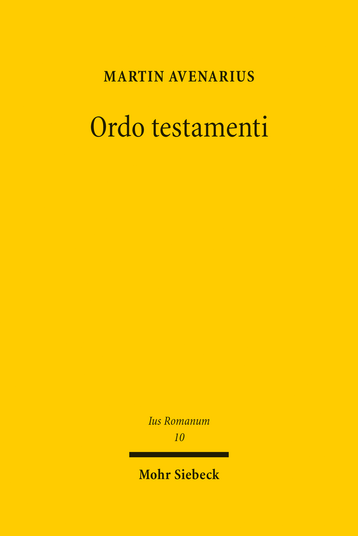All information here
I GIORNATA, giovedì 30 MAGGIO ore 14,00
PRIMA SESSIONE - Prima parte
Coordina Mario Ascheri
Saluti delle autorità e presentazione del Convegno Saluti del Sindaco di Cento, Edoardo Accorsi
Dalla Biblioteca del Senato, Alessandra Casamassima, Sandro Bulgarelli, La Biblioteca del Senato e gli statuti: bilanci e prospettive di un vincolo postunitario
Rolando Dondarini, De Statutis-Society (SISEFN): una storia ultratrentennale
Claudia Storti, Il prisma statutario nella ricerca dell'ultimo trentennio
Manuela Bolelli, Gli statuti medievali di Cento
ORE 16,00: PRIMA SESSIONE - Seconda parte
Tipologia e produzione degli statuti
Coordina Paolo Cammarosano
Lorenzo Tanzini, Gli statuti cittadini. Cronologie e tipologie
Francesco Salvestrini, Gli statuti signorili italiani (secoli XIII-XV)
Anna Esposito, Gli statuti di sodalizi religiosi
Gian Paolo Scharf, Gli statuti minori e rurali (secoli XIII-XV)
Carla Frova, Gli statuti di università e collegi studenteschi
Ferdinando Treggiari, Gli statuti di collegi dottorali
Maura Mordini, Un rapporto multidimensionale: i giuristi e lo statuto comunale
Ivana Ait, Gli statuti di corporazioni di arti e mestieri
Alessia Legnani Annichini, Gli statuti delle Mercanzie: studi fatti e da fare
Maura Fortunati, Gli statuti marittimi e diritto commerciale
II GIORNATA, venerdì 31 maggio ore 9,30
SECONDA SESSIONE (MATTINO) Materie e temi
Coordina Claudia Storti
Federigo Bambi, La lingua degli statuti comunali
Alessandra Bassani, Il giurista e lo statuto: Nello da San Gimignano
Raffaella Bianchi Riva, Semantica dello scandalo nel diritto statutario tardomedievale
Beatrice Borghi, La partecipanza agraria. Un’istituzione storica delle campagne emiliane
Roberta Braccia, Statuti civili genovesi in una prospettiva di genere
Alfio Cortonesi, Statuti comunali e storia agraria. Una nota storiografica
Alessandro Dani, La cura dell’ambiente negli statuti comunali. Spunti dai territori toscani e pontifici tra XIII e XIV secolo
Miriam Davide, Marina Romani, Il credito negli statuti medievali italiani
Tiziana Ferreri, La disciplina del 'danno dato' negli statuti delle comunità dell'Alto Lazio
Filippo Galletti, La vita notturna negli statuti emiliano-romagnoli
Maria Grazia Nico, La legislazione suntuaria Sandro Notari, Statuti e consuetudini locali. Il caso del diritto municipale romano
TERZA SESSIONE (POMERIGGIO) 15,00
Aree statutarie Coordina Maria Grazia Nico
Paolo Cammarosano, Marialuisa Bottazzi, Emanuela Tabiadon, Paola Saltini, Consuetudini, leggi e statuti dell'area italiana nord-orientale
Elisabetta Fusar Poli, Marco Castelli, La lunga età degli statuti nella Lombardia veneziana
Hannes Obermair, L’area alpina centrale
Valerio Gigliotti, Caterina Bonzo, Lo studio degli statuti piemontesi: un cantiere ancora aperto
Paola Galetti, Corporazioni di arti e mestieri: alcuni esempi per Bologna
Michele Pepe, Fini assistenziali e regole del lavoro e della produzione negli statuti professionali del Regno di Napoli in età moderna
Laura Galoppini, Gli statuti dei mercanti lucchesi e fiorentini nelle Fiandre (secoli XIV-XV)
Alessandro Soddu, Cartas de Logu e statuti nella Sardegna tardomedievale
Stefania Zucchini, L’Umbria pontificia
Francesca Sigismondi, Il Lazio pontificio
Francesco Pirani, La Marca pontificia
Concetta Bianca, Le consuetudini e gli statuti di Messina del 1498
Matteo Moro,«Hec sunt statuta […] super pedagiis mercandiarum». Gli statuti dei dazi in area piemontese: riflessioni e nuove prospettive di ricerca
QUARTA SESSIONE
Strumenti di lavoro, repertori, collezioni, progetti di studio
Coordina Rolando Dondarini
Francesco Mastroberti, Progetto Alfarana: arti, mestieri, statuti nel Mezzogiorno d’Italia dal Medioevo all'età contemporanea
Gioacchino Giammaria, Il progetto ISALM per lo studio degli statuti cassinesi
Giovanna Giubbini, Il progetto di digitalizzazione e pubblicazione degli statuti comunali dell’Umbria
Enrico Angiolini, Le repertoriazioni statutarie
Tavola rotonda ore 11
Coordina Mario Ascheri
Vi prendono parte: Gisela Drossbach (Universität Augsburg) Susanne Lepsius (Universität München) Ingrid Baumgärtner (Universität Kassel) Didier Lett (Université Paris Cité) Gero Rudolf Dolezalek (Universität Leipzig, University of Aberdeen) Mike Widener (Yale Law School)
COMITATO SCIENTIFICO Rolando Dondarini (Presidente), Enrico Angiolini, Mario Ascheri, Enrico Basso, Beatrice Borghi, Marialuisa Bottazzi, Roberta Braccia, Paolo Cammarosano, Alessandro Dani, Carla Frova, Laura Galoppini, Maria Grazia Nico, Sandro Notari, Hannes Obermair, Claudia Storti
COMITATO ORGANIZZATORE Enrico Angiolini, Beatrice Borghi, Filippo Galletti, Laura Galoppini
L'associazione De Statutis Society è convenzionata con Grand Hotel Bologna (Via Ponte Nuovo 42, Pieve di Cento (BO) - 40066, tel. 051 6861070) per soggiorno a notte con prima colazione: Camera Singola € 84,00 a notte; Camera Doppia/matrimoniale € 102,00 a notte.





